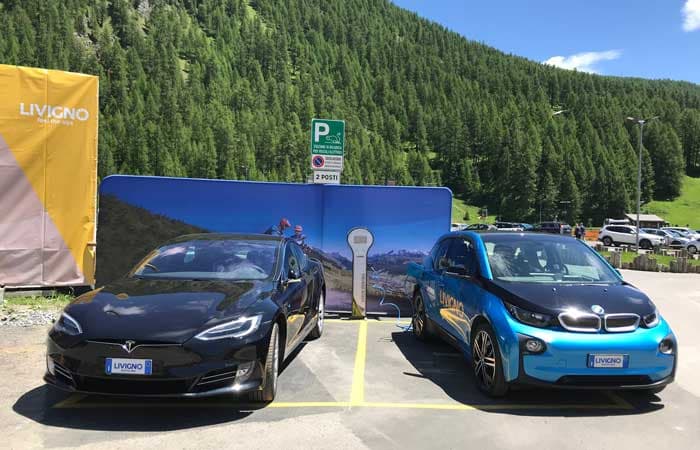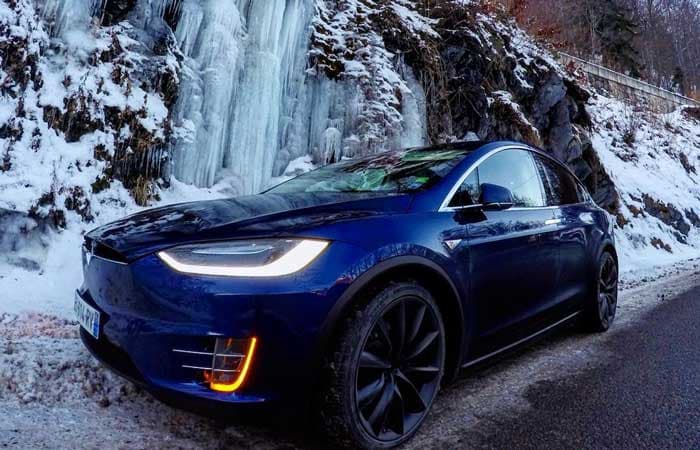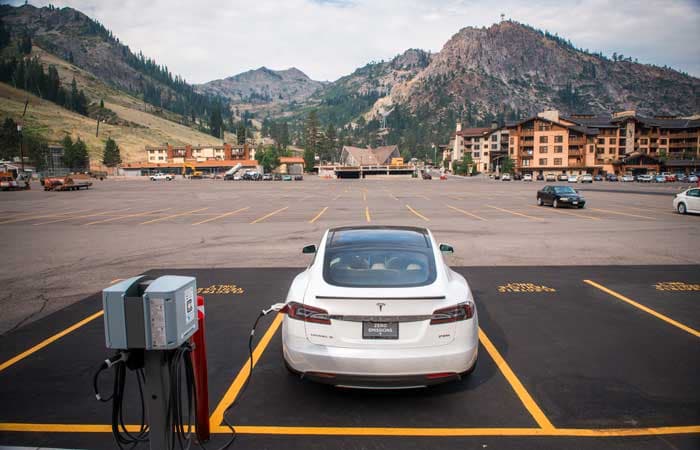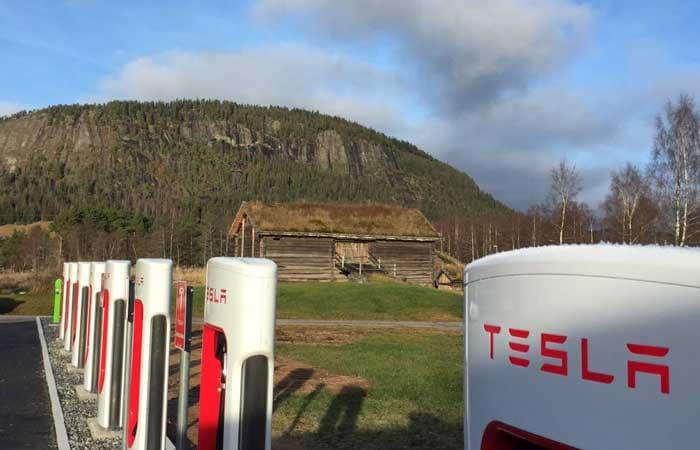Is electric better than petrol? Many people consider electric cars to be a thing of the future, but 1.3% of cars on the road in the UK are already electric. And, electric car purchases are already up 122% to last year. The only shortfall is driving long distances and needing to charge them, but with evolving technology the batteries are becoming longer-lasting. I’ve spoken to owners of winterised, long-range and fast-charging vehicles – like the Tesla Model X – and they have said it’s a walk in the park. When you ski, do electric cars on your journey help reduce your carbon footprint?
When you are driving to ski, electric cars on the road should mean less of a carbon footprint, but when it comes to climate change maths it’s not always that simple. Whether it’s a plane, train or car – diesel, petrol, jet fuel or electric – a fundamental part of the equation is how many people there are to divide the CO2 output between.

Electric vs Petrol/Diesel?
What are the main differences between the electric car and petrol/diesel cars? You would expect fewer emissions from an electric car, and you would be right in most scenarios, but there are a few things to keep in mind:
As most electric cars are small, this skews the maths. Unless you can afford a Tesla Model X or a family-sized ski electric car, there’ll only be two or three people in the car with your ski bags. According to research by the Priestley International Centre for Climate, the average emissions of an electric car travelling from London to the Alps is said to be 66g of C02. This divided by two or three people is between 22-33g each.
A petrol or diesel car is said to have 398kg, which is around 6 times more than electric. Larger cars that can fit five or six people in the car will make each person’s output between 66-79g each. This is still better than flying (317kg per person in economy), but over double, nearly triple the electric car. However, one person driving to the Alps in a petrol or diesel car will be worse than flying economy.
Both petrol and electric cars – regardless of how many people are in the vehicle – is considered worse than the Eurostar, which comes in at just 6kg of C02.

Beyond driving
Where does the electricity come from? If it’s renewable electricity, great. However, if it’s a coal or gas-fired power station, you’re heightening the emissions. In the French Alps, you are likely to find low-carbon nuclear or green electricity the norm.
Next is the debate around CO2 emissions from car production. A study in China calculated that the C02 emissions from the production of electric cars was 59% greater than the production of petrol cars. This was largely attributed to making the battery.
Even with these variables, the consensus is that electric cars are better than petrol and diesel cars.

Maximise travel efficiency
If you are a proud owner of an electric car, here are some efficiency ideas:
The smaller the car’s battery, the more charges you’ll need to do.
- Do your research and map out the charging points along your route.
- The car park at LeShuttle has charging points, so you can top up while waiting for your train slot.
- Plan your trip to charge your car when you need to take breaks, this will give you time to eat at leisure.
Some electric cars have limited storage space, we’d advise against using a roof rack as the added drag reduces the range and you’ll have to charge more frequently. Packing light is advised!

We’ve already seen an enormous spike in people opting for electric cars and this is set to continue. At the same time, the design for the vehicle’s range is continuously improving as is the speed of charging. And in the Alps, more and more resorts will provide chargers – and possibly incentives like lift pass discounts and prioritised parking by the lifts for ski electric car drivers.
Similar to the change from hats to helmets on the slopes, it’s just a matter of time before we all opt into the eco-friendlier choice. See where electric cars rank in C02 emissions here:
Approximate CO2 emissions pp from London to the French Alps
| Mode of Transport | KG CO2 | Compared to air | Based on |
| Economy Class Flight | 317 | – | |
| Petrol Car (just you) | 398 | 20% more than air travel | Travelling alone in a petrol car |
| Petrol Car (full) | 80 | 33% of air travel | Being 1/5 in an average petrol car |
| Electric Car (just you) | 66 | 21% of air travel | Travelling alone in an electric car |
| Electric Car (full) | 13 | 4% of air travel | Being 1/5 in an average electric car |
| Eurostar | 6 | 2% of air travel |
(source: Research by Dr Piers Foster, Director UK; climate.leeds.ac.uk)
If you would like to start planning your next ski holiday, contact our experts today on 0207 471 7700.
























































































